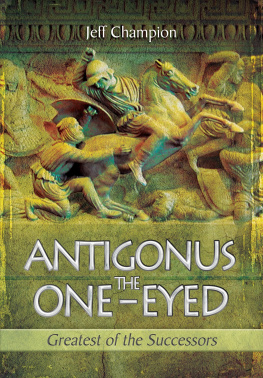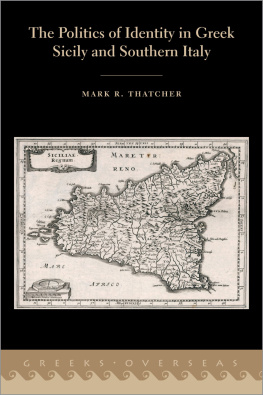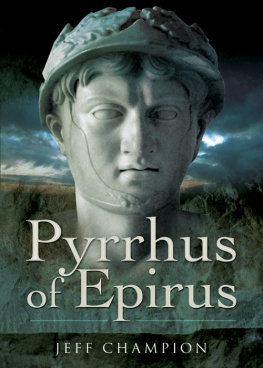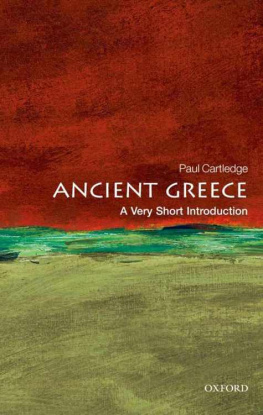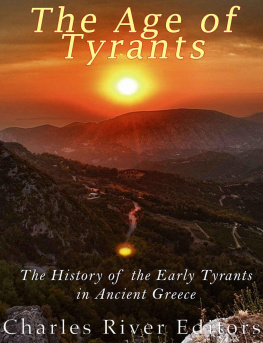First Published in Great Britain in 2010 by
Pen & Sword Military
an imprint of
Pen & Sword Books Ltd
47 Church Street
Barnsley
South Yorkshire
S70 2AS
Copyright Jeff Champion 2010
ISBN: 978 1 84884 063 8
ePub ISBN: 9781848849341
PRC ISBN: 9781848849358
The right of Jeff Champion to be identified as Author of this Work has been asserted
by him in accordance with the Copyright,
Designs and Patents Act 1988.
A CIP catalogue record for this book is
available from the British Library
All rights reserved. No part of this book may be reproduced or transmitted in any
form or by any means, electronic or mechanical including photocopying, recording or
by any information storage and retrieval system, without permission from the
Publisher in writing.
Typeset in Sabon by
Phoenix Typesetting, Auldgirth, Dumfriesshire
Printed and bound in England by
CPI UK
Pen & Sword Books Ltd incorporates the imprints of Pen & Sword Aviation, Pen &
Sword Maritime, Pen & Sword Military, Wharncliffe Local History, Pen & Sword
Select, Pen & Sword Military Classics and Leo Cooper.
For a complete list of Pen & Sword titles please contact
PEN & SWORD BOOKS LIMITED
47 Church Street, Barnsley, South Yorkshire, S70 2AS, England
E-mail:
Website: www.pen-and-sword.co.uk
Preface
Throughout ancient and medieval times the island of Sicily was renowned for its wealth. This made it a tempting target for a whole series of conquerors: Greeks, Carthaginians, Romans, Vandals, Arabs and Normans. At the end of the eighth century BC the Greeks and Phoenicians had both sent colonists to the island. The Greeks were in search of new homes and farmlands. The Phoenicians were interested in trade. The two peoples would co-exist peacefully and trade profitably for nearly two centuries.
This was a period of great turmoil and change within the Greek world. The old, aristocratic governments would largely be overthrown and replaced by dictators, known as tyrants. The old form of warfare as described by Homer, where aristocratic heroes engaged in single combat, would also be swept away. A new class of wealthy farmers would arm themselves with armour, spear and shield. They were the first hoplites. They would form themselves into close-packed formations known as phalanxes, where co-operation was all important and individual heroics censured. These hoplite phalanxes would dominate the battlefields of the Greeks for three centuries.
Towards the end of the sixth century the peaceful relationship between the Greeks and Carthaginians would break down. The Greeks had continued to push further west, right throughout the Mediterranean, threatening Phoenician interests. This new expansionism worried the now dominant Phoenician city in the region, Carthage. In 480 BC, the same year that the Persians invaded Greece, they sent a large military expedition to Sicily to conquer the island and end the Greek threat. The campaign ended in disaster, as the Greeks, lead by Gelon, the first tyrant of Syracuse, decisively defeated them at the battle of Himera.
For the next seventy years the Carthaginians remained aloof from the affairs of Sicily while they concentrated on building an empire in Africa. Now that the Carthaginian threat had dissolved, the Greeks of Sicily no longer felt the need to be ruled by tyrants. In a widespread series of revolutions they would overthrow the tyrannies and set up democratic governments. The Greeks would then concentrate on which city among them would be supreme. Syracuse would emerge from these conflicts as the clear winner and leader of the Greeks of Sicily. This period of democratic rule, prosperity and relatively low levels of warfare was looked back upon by later Greeks as a golden age.
This serenity would be destroyed, not by the Carthaginians, but by their fellow Greeks, the Athenians, who would cast their covetous eyes over the wealth and particularly the wheat of Sicily. In 415 they would send their largest ever force to conquer Syracuse. The campaign would end in disaster, when in 413 the Syracusans and their allies would destroy the Athenian force.
Syracuse now appeared triumphant and unchallenged on the island. The Athenian invasion, and its openly discussed ambition of using Sicily as a base to attack Africa, had once again aroused Carthaginian anxieties. They feared that the Greeks of Sicily, united under a powerful Syracuse, might now be a threat to their cities in western Sicily and even to Carthage itself. In 410 they sent another invasion force to Sicily, beginning a long series of wars for control of the island that would not be settled until the Romans sacked Syracuse in 212, turning the island into their own private estate. These wars would be waged with extreme viciousness, even for ancient times, due to the ethnic and religious hatreds that the two peoples held for one another. Whole cities would be destroyed, populations massacred and temples defiled.
The initial successes of the Carthaginian invasion would lead to a political revolution in Syracuse. In 405 the population would panic and give emergency powers to a young soldier named Dionysius. He would use his new position to establish a thirty-eight year rule over the city. The tyrants of Syracuse had returned and the democracy was dead. For all but twenty of the next 195 years, Syracuse would be ruled by tyrants. For much of that time they would be at war with Carthage. This book and the following volume are an attempt to produce an easily accessible, narrative history of these events.
No attempt at writing such a narrative would be possible without the survival of the work of the ancient historian Diodorus, who described his work as one of the universal histories. It covered events, in forty books, from the legendary times prior to the Trojan War until the beginning of Caesars campaigns against the Celts. What information there is on Diodorus life and work is, with one exception, contained within his own work. He was a citizen of the town of Agyrium in Sicily and probably wrote his history between the years 5626 BC .
When assessing Diodorus value as a historian it is essential to look at his methods of composition. Diodorus tells us that he deliberately set about writing a history that was both comprehensive and readable. As he said himself: for the benefit to the readers lies in understanding the greatest number and variety of events. He claims that he sought to write an accessible account, surpassing all others in its usefulness, by reading the writings of other historians, visiting the sites to prevent errors and utilizing the public records in Rome.
Despite Diodorus lofty ideals his value as a historian came under stinging attack by the German scholars of the nineteenth century, describing him as this most miserable of all writers. Much of this severe criticism derived from the belief that Diodorus was simply an epitomizer, and long sections of his work were merely an abbreviation of an earlier author. In more recent times Diodorus reputation as a historian has been largely transformed. He is generally seen as a competent historian who read widely and produced his own work. His major weaknesses are a tendency to moralize and, at times, overly abridge his narrative. Diodorus cites three earlier historians during his coverage of events in Sicily. These are Ephorus, Timaeus and Philistus.
Ephorus lived from c . 400330 and was born in Cyme in Asia Minor. He was the first historian to write a universal history, named Historiai , in twenty-nine books, covering the period from the eleventh century until 356. Ephorus work was highly praised and much read in antiquity, was freely drawn upon by other historians and the geographer Strabo.


